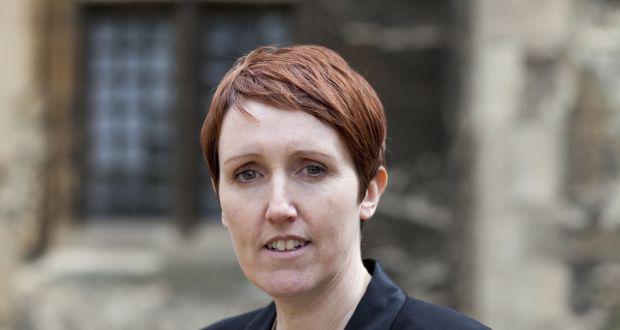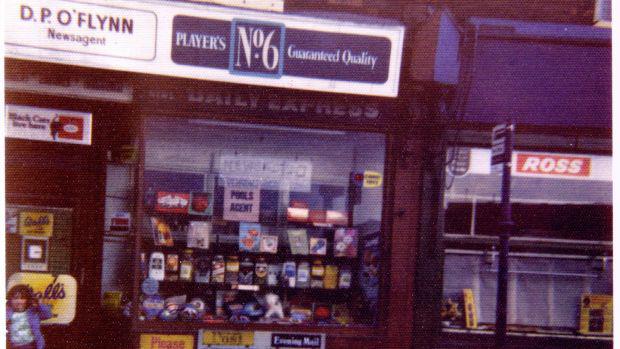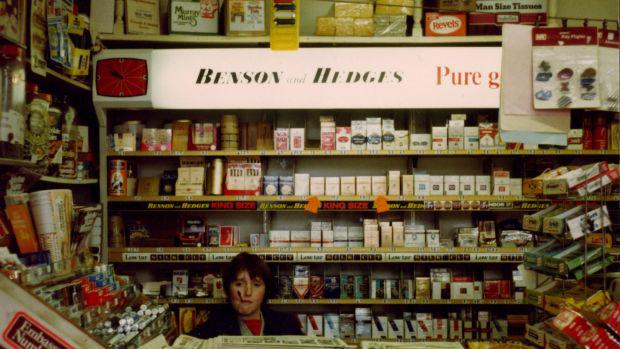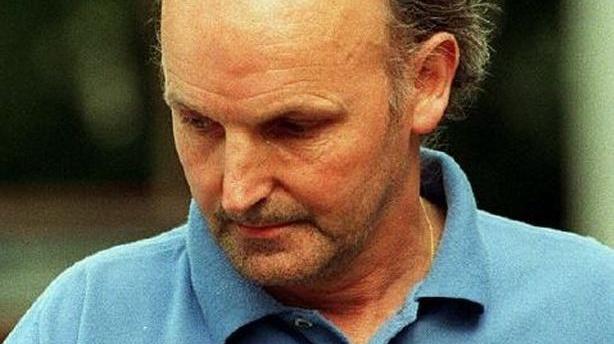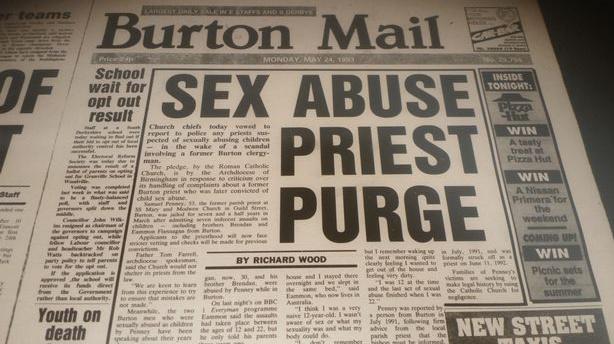|
My mother felt the stain of Fr Penney’s crimes spread to herself, her faith, her parish
By Catherine O'flynn
Fr Penney’s decades of abuse were already known by the Archdiocese of Birmingham when it moved him into the lives of more children After settling in England, my dad, like many immigrants before and since, became a shopkeeper. In 1961 he took over a newsagent business in a part of inner city Birmingham called Nechells. The former owner sold him shelves of ancient, worthless stock and then disappeared fast before the tide of first slum clearances and then factory closures swept away most of the customers. Those who remained were a mix of Brummies, West Indians and Irish. Alongside the English papers we sold the Clare Champion, the Roscommon Herald, The Irish Times, and the Echo. Upstairs in the living room we listened to scratchy 45s of the Dubliners, the Clancy Brothers, and the Ludlows. Outside lay empty factories and wasteland. In the midst of all this urban decay were two local beacons: the Victorian Gothic parish church of St Joseph’s, designed by Pugin; and a gleaming, 60s modernist branch of Lloyds Bank. They stood side by side – inner city Birmingham’s very own Manzana de la Discordia. When not at school or home, my childhood was passed in or around those buildings. Like most churches of its era, St Joseph’s was bitterly cold with silent but fierce competition among parishioners to get a spot next to one of its few radiators. I spent a lot of my early life, pressed up against the feeble, clanking, cast iron bars staring at the murky oil paintings on the walls depicting the Stations of the Cross. The names stay with me, something awful in their toneless cataloguing: Jesus falls the second time, Jesus falls the third time, Jesus is stripped of his garments, Jesus dies on the cross. Together they formed a jerky, stop-frame horror film: the nails in the flesh, the spear in the side, the crown of thorns. The only relief from the gore was to turn my eyes to the reassuring plaster statue of St Joseph holding a piece of wood. I liked to think of him busy in his workshop on Good Friday, making a spice rack while the atrocities up on the hill passed him by. My dad came from a pious Leitrim family peppered with clergy and teachers. Three of his sisters became Marist nuns. My mother’s less auspicious family from Wexford weren’t of the class that sent their children to seminaries or convents, but religion shaped her life far more profoundly than it did my father. She was a keen reader of Catholic novelists and theology and spent her working life as a teacher at St Joseph’s school. She considered it her personal failure that none of her six children grew up to be devout. I don’t remember when I stopped believing. It’s truer, if less dramatic, to admit that I don’t remember when I ever did. It was the same with Father Christmas. I was a kind of cheap, obtrusive CCTV demanding only comics in payment In truth, I was in thrall to a different passion. My dad was to blame for my obsession with crime. From an early age he’d get me to keep a close eye on other kids in the shop as they rummaged through the Swizzels and Mojos. I was a kind of cheap, obtrusive CCTV demanding only comics in payment. I liked the responsibility but soon tired of small time confectionery grifters. My Usborne detective guides were filled with practical advice for children on how to set up a dead letter drop, foil yacht hijacks and tail suspicious characters down dark streets at night. I wanted a big case to crack. Every evening, Dad deposited the shop’s meagre takings into a mysterious metal drawer in the side of the bank, called the night safe. Any bank on the doorstep would have been exciting for a child detective but the other worldly glamour of this particular branch – an elegant curved, steel and glass wonder somehow transplanted from 1960s California to Nechells – was irresistible to me. It was the kind of place I imagined seeing Cary Grant escaping James Mason. It was ripe with the potential for crime. I started spending every evening staking out the bank. Along with my loyal agency partner Mickey (a stuffed toy monkey inexplicably dressed as a prohibition-era gangster) I took down the registration numbers of any car that parked or slowed suspiciously in the vicinity. We never saw Cary Grant or James Mason. We never saw anyone really; the street was largely deserted in the evenings. We sat on the curb and waited. On Sundays I’d stop a few yards short of the bank and attend mass at St Joseph’s. Our priest was a sombre man, who never, as far as I recall, manifested a single flicker of emotion. He delivered the Mass in a quiet voice, rarely stooping to the vulgarity of the sign of peace, keeping his sermons short, but reassuringly impenetrable. He was serious and remote and suited me just fine, allowing my mind to wander to the nexus of potential crime next door. All this changed, however, when I was 14 with the arrival of Fr Samuel Penney. It was not possible to ignore Fr Penney. His physical presence alone – crazed wiry black hair, bony frame and piercing nasal voice – demanded attention. Weekly newsletters were no longer painstakingly typed but covered in Penney’s erratic black scrawl complete with spelling mistakes and jabbing exclamation marks. The sermons were endless harangues for money for a new youth centre. Despite the surrounding poverty, Fr Penney cajoled, pleaded for and got increased donations from the parishioners, energised and enthused by his fervour and directness. He talked a lot about the “young folk”, a term guaranteed to incur my teenage disdain, my lip involuntarily curling every time he used it. I pitied the kids younger than me, unable to escape the fun-filled Jesus activities he constantly organised. The final straw for me was the fact that Penney managed to make the 11.15am singing Mass stretch even longer by picking only insanely long hymns and never allowing us, as his predecessor had done, to skip the filler verses. I’d already abandoned my beloved bank by this stage, disillusioned at the stubborn refusal of international criminals to turn up. Now I abandoned St Joseph’s too. My father and I fled to a neighbouring parish of St Vincent’s. I was going through a phase in my life where I listened to depressing music and dressed like a lunatic. My relationship with my dad had grown fractious since I’d stopped helping in the shop and started wearing his pyjama jacket out and about. My mother, meanwhile, stayed loyal to St Joseph’s. She found Penney unbearable too, but St Joseph’s had her in its grip The Sunday morning trips to St Vincent’s though provided some respite from the frostiness. We’d stand side by side in shafts of coloured sunlight, my dad looking around theatrically, his face etched with concern, every time the poor tuneless nun at the back of the congregation launched into another hymn. My mother, meanwhile, stayed loyal to St Joseph’s. She found Penney unbearable too, but St Joseph’s had her in its grip. Her faith – full of longing and regret, sorrow and guilt – had moulded to fit the murky, purgatorial corners of the old church. My father didn’t have to dodge Penney for long. One Sunday, a few months after the new priest’s arrival, Dad was late getting up from his afternoon nap. When I went to check on him, I found him on the floor by his bed saying words I couldn’t understand. In hospital, unconscious following his stroke, he was visited by his three sisters and many of their Marist colleagues, all praying for him and his soul. He was visited too by Fr Penney and it was he who, on the third day, administered the sixth of my dad’s lifetime total of holy sacraments and gave him the last rites. It was several years before I learned that I’d spent my childhood staking out the wrong building. Serious crime had been on my doorstep, not at the bank, but next door at St Joseph’s. Fr Penney’s decades of abuse were already known by the Archdiocese of Birmingham when it moved him to Nechells and into the lives of more children. Everyone – parents, teachers and victims – felt they shared responsibility for what he alone had done My mother discovered that her own pupils had been among the many he had sexually abused. She saw herself clearly as the bridge between her class of seven year olds and their priest, the vital link between school and church preparing the children for their first Holy Communion. She felt the stain of Penney’s crimes spread to herself, her work, her parish, her faith, to all those things to which she had given so much of her life. The word she used again and again was “besmirched”. Everyone – parents, teachers and victims – felt they shared responsibility for what he alone had done. Penney was jailed in 1993 for 7½ years. A month after his sentencing, Mom was late getting up one morning. When I went to check, I found her on the floor by her bed saying words I couldn’t understand. She died later that day in hospital having never regained consciousness from a stroke. I haven’t been inside St Joseph’s church since I was 14 but I think of it often. I remember the Stations of the Cross, the terrible suffering and sacrifice. They have a more personal resonance now as Mom, like her saviour, died on Good Friday. I think too of the old plaster statue of St Joseph himself, and my childhood desire that he was oblivious to, unbesmirched by, the atrocities going on around him.
|
.
Any original material on these pages is copyright © BishopAccountability.org 2004. Reproduce freely with attribution.
